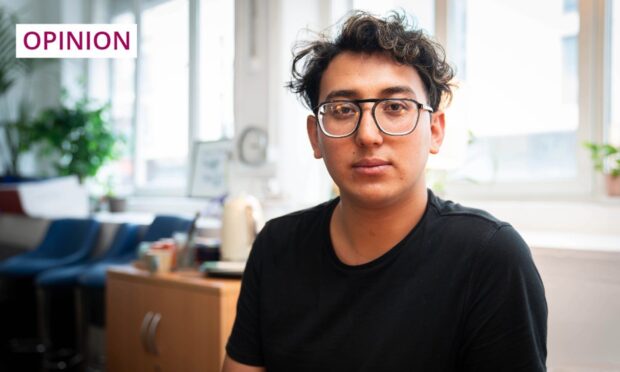For all her bluster and chutzpah, my mother was a tender-hearted wee thing who cried at the drop of a hat.
On the rare occasions she heard a rendition of Ellan Vannin, the unofficial national anthem of her native Isle of Man, she could sing only the opening lines in her high, warbly voice before the tears flowed. In the end, she preferred not to hear it.
As a child, my heart used to break watching what I know now was the sadness of the exile; the island girl who fell in love with a Glaswegian and moved there, despite friends warning her that Sauchiehall Street flowed with blood on a Saturday night.
The song is about a faraway islander who sits “beneath the starlight” thinking of home and youth, “when rises like a vision, sparkling bright in nature’s glee, my own dear Ellan Vannin, with its green hills by the sea”.
As a little girl, I looked up at the painting on our wall that I was told was the island – a cliff, a sea and pale blue sky – and the words of that song resonated somewhere deep inside. I had not seen the blood flow in Sauchiehall street, but I knew Glasgow had none of the things that Ellan Vannin spoke of: neither the murmuring wavelets kissing the fairy shore, nor the emerald waters where the mermaid sings, and I felt the pain of my mother’s loss.
What that taught me is something I think of often, when I hear the plight of refugees and immigrants who are treated with such disdain. The decision by the Supreme Court to block the Rwanda scheme was a relief, because it puts a brake on government attempts to dehumanise powerless people, to legitimise state cruelty and contempt.
They forget that exiles leave behind more than a land. They leave behind dying fathers and destitute mothers and struggling siblings, taking only memories of those connections. They leave a life, and that is never easy, even when it’s chosen.
But this is about more than refugees. The danger now is that the government will circumvent the decision by removing us from international treaties on human rights – something they denied would happen following Brexit. We must resist.
It would leave us in the dubious company of authoritarian regimes like Russia and Belarus, a pathetic little island with no heart, no international obligations, no adherence to higher values. A tinpot state that, when it doesn’t like the rules, thinks all you have to do is change them.
Times past; times lost; times never lived
My mother did not move so far, except, in her day, it might as well have been. With her six children, there wasn’t the opportunity, or the money, to return, and I believe it got too painful. She kept the lid closed, though she delighted in her “otherness”, particularly her accent, becoming outraged if anyone mistook her for English rather than Manx.
The correct heritage was important. The fairy bridge where you said good day to the little men as you drove across, or risked breakdown for your insolence. The emblem of the three legs of Man, which, she said, meant: “whichever way you throw me, I will stand”.
Stand she did, but her resilience faltered when her father died. I waited and waited for hours for her to reappear from the upstairs room where my father comforted her.
She did not go home for the funeral, which seemed shocking at the time, but now I understand. She was the little ostrich, sticking her head in the sand, avoiding what she missed and the ghosts of her past. Times past; times lost; times never lived.
Being homeless is being without more than a home
There is so much unforgiveable unkindness in the UK Government’s attitude to groups of people – both here and abroad – who have nothing. In their affluence, they are haughty; in their power, they are corrupt. But, most importantly, in their humanity, they are lacking.
Being homeless is being without more than a home. The exile in Ellan Vannin knows it’s about people and past experiences as much as land. “Then mem’ries sweet and tender come like music’s plaintive flow, of the hearts in Ellan Vannin that loved me long ago”.
In her mind, I guess she went home. It’s the one place refugees can’t go, the reason they deserve compassion
I was searching through old papers recently when I came across my mother’s funeral order of service. Underneath the hymns were the words of Ellan Vannin. These days, I have become my mother: I cry now when I hear them, because they are my past, too.
In my mother’s final days, while unconscious but distressed, my sister sang the song to her, and her breathing calmed. It must have been the only time she heard those words without tears.
In her mind, I guess she went home. It’s the one place refugees can’t go, the reason they deserve compassion. I am grateful now for the insight my mother gave me to those separated from old lives. “And I give with tears and blessings my own fondest thoughts to thee. My own dear Ellan Vannin with its green hills by the sea.”
Catherine Deveney is an award-winning investigative journalist, novelist and television presenter


Conversation